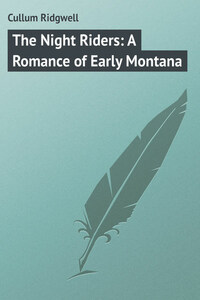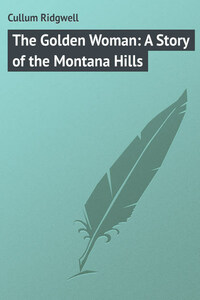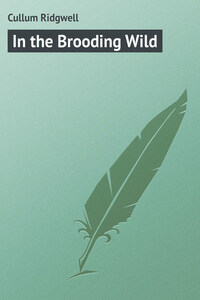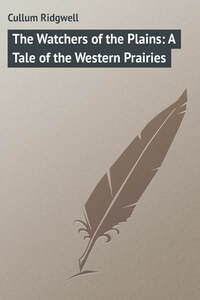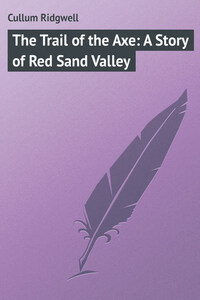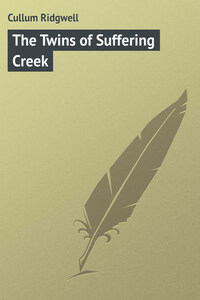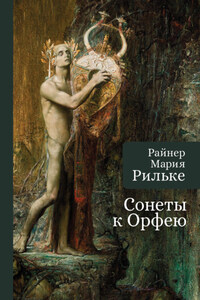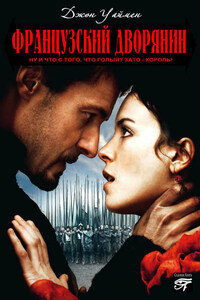CHAPTER I
IN THE HANDS OF THE PHILISTINES
Forks Settlement no longer occupies its place upon the ordnance map of the state of Montana. At least not the Forks Settlement – the one which nestled in a hollow on the plains, beneath the shadow of the Rocky Mountains. It is curious how these little places do contrive to slip off the map in the course of time. There is no doubt but that they do, and are wholly forgotten, except, perhaps, by those who actually lived or visited there. It is this way with all growing countries, and anywhere from twenty to thirty years ago Montana was distinctly a new country.
It was about ’85 that Forks Settlement enjoyed the height of its prosperity – a prosperity based on the supply of dry-goods and machinery to a widely scattered and sparse population of small ranchers and farmers. These things brought it into existence and kept it afloat for some years. Then it gradually faded from existence – just as such places do.
When John Tresler rode into Forks he wondered what rural retreat he had chanced upon. He didn’t wonder in those words, his language was much more derogatory to the place than that.
It was late one afternoon when his horse ambled gently on to the green patch which served Forks as a market-place. He drew up and looked around him for some one to give him information. The place was quite deserted. It was a roasting hot day, and the people of Forks were not given to moving about much on hot days, unless imperative business claimed them. As there were only two seasons in the year when such a thing was likely to happen, and this was not one of them, no one was stirring.
The sky was unshaded by a single cloud. Tresler was tired, stiff, and consumed by a sponge-like thirst, for he was unused to long hours in the saddle. And he had found a dreary monotony in riding over the endless prairie lands of the West.
Now he found himself surrounded by an uncertain circle of wooden houses. None of them suggested luxury, but after the heaving rollers of grass-land they suggested companionship and life. And just now that was all the horseman cared about.
He surveyed each house in turn, searching for a single human face. And at last he beheld a window full of faces staring curiously at him from the far side of the circle. It was enough. Touching his jaded horse’s flanks he rode over toward it.
Further life appeared now in the form of a small man who edged shyly round the angle of the building and stood gazing at him. The stranger was a queer figure. His face was as brown as the surface of a prairie trail and just as scored with ruts. His long hair and flowing beard were the color of matured hay. His dress was simple and in keeping with his face; moleskin trousers, worn and soiled, a blue serge shirt, a shabby black jacket, and a fiery handkerchief about his neck, while a battered prairie hat adorned the back of his head.
Tresler pulled his horse up before this welcome vision and slid stiffly to the ground, while the little man slanted his eyes over his general outfit.
“Is this Forks Settlement?” the newcomer asked, with an ingratiating smile. He was a manly looking fellow with black hair and steel-blue eyes; he was dressed in a plain Norfolk jacket and riding kit. He was not particularly handsome, but possessed a strong, reliant face.
The stranger closed his eyes in token of acquiescence.
“Ur-hum,” he murmured.
“Will you point me out the hotel?”
The other’s eyes had finally settled themselves on the magnificent pair of balloon-shaped corduroy riding-breeches Tresler was wearing, which had now resettled themselves into their natural voluminous folds.
He made no audible reply. He was engrossed with the novel vision before him. A backward jerk of the head was the only sign he permitted himself.
Tresler looked at the house indicated. He felt in some doubt, and not without reason. The place was a mere two-storied shanty, all askew and generally unpromising.
“Can I – that is, does the proprietor take – er – guests?” he asked.
“Guess Carney takes most anythin’,” came the easy reply.
The door of the hotel opened and two men came out, eyeing the newcomer and his horse critically. Then they propped themselves in leisurely fashion against the door-casing, and chewed silently, while they gazed abroad with marked unconcern.
Tresler hazarded another question. He felt strange in this company. It was his first real acquaintance with a prairie settlement, and he didn’t quite know what to expect.
“I wonder if there is any one to see to my horse,” he said with some hesitation.
“Hitch him to the tie-post an’ ast in ther’,” observed the uncommunicative man, pointing to a post a few yards from the door, but without losing interest in the other’s nether garments.
“That sounds reasonable.”
Tresler moved off and secured his horse and loosened the saddle-girths.
“Pardon me, sir,” he said, when he came back, his well-trimmed six feet towering over the other’s five feet four. “Might I ask whom I have the pleasure of addressing? My name is John Tresler; I am on my way to Mosquito Bend, Julian Marbolt’s ranch. A stranger, you see, in a strange land. No doubt you have observed that already,” he finished up good-naturedly.
